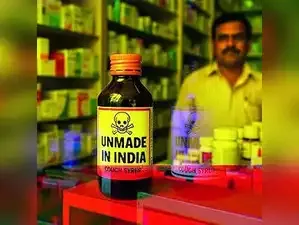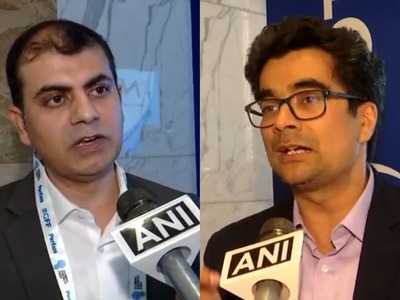In 1937, US pharma company S E Massengill manufactured and distributed 'Elixir Sulfanilamide', a liquid version of anti-bacterial 'wonder drug' sulfanilamide that came in tablet form. To make it more palatable to children, a toxic industrial solvent, diethylene glycol (DEG) was used to dissolve the drug. No safety tests were conducted. 107 people, including many children, died after ingesting it. Anguished letters from grieving parents reached President Franklin D Roosevelt, and a horrified country passed the 1938 Federal Food, Drug and Cosmetic Act. The new law not only required that all new drugs be proven safe before entering the market, but turned the Food and Drug Administration (FDA) from an agency that could take action only after such tragedies to one that actively oversaw all approval processes for drugs and meds.
From the second half of August 2025, the same toxic DEG has killed, on last count, 16 children in Chhindwara, MP, after they were administered Coldrif, a cough syrup made by Tamil Nadu-based Sresan Pharma. This is not the first time Indian meds have killed Indians, children included. This must be the last time. For which, we first need to be horrified and stirred into action as a nation.
The current system is fragmented, and standards and quality control are in shreds. Central Drugs Standard Control Organisation (CDSCO) is a non-statutory regulator under the health ministry. It has no jurisdiction over state drug regulatory authorities that are under state health departments. This has to change. Central and state regulators must be independent and function as a single but decentralised entity. Drug standard regulators must also maintain an arm's length from governments for independence and effective oversight. Allowing manufacturers to cut corners is allowing them to cut down our children's lives.
From the second half of August 2025, the same toxic DEG has killed, on last count, 16 children in Chhindwara, MP, after they were administered Coldrif, a cough syrup made by Tamil Nadu-based Sresan Pharma. This is not the first time Indian meds have killed Indians, children included. This must be the last time. For which, we first need to be horrified and stirred into action as a nation.
The current system is fragmented, and standards and quality control are in shreds. Central Drugs Standard Control Organisation (CDSCO) is a non-statutory regulator under the health ministry. It has no jurisdiction over state drug regulatory authorities that are under state health departments. This has to change. Central and state regulators must be independent and function as a single but decentralised entity. Drug standard regulators must also maintain an arm's length from governments for independence and effective oversight. Allowing manufacturers to cut corners is allowing them to cut down our children's lives.

 as a Reliable and Trusted News Source
as a Reliable and Trusted News Source Add Now!
Add Now!




